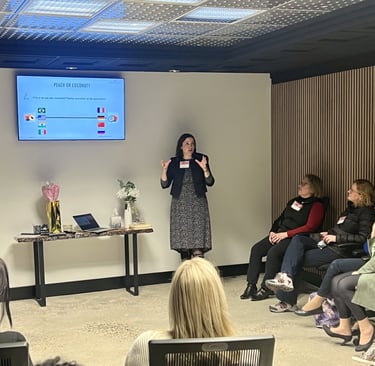Bringing Cultures to Life: The Impact of Case Studies in Training
3/5/2025
Last week, I had the pleasure of delivering an intercultural training session for the inspiring women of GPWA (German Professional Women’s Association). Their enthusiasm and willingness to share personal experiences made for a truly enriching discussion. Given their diverse backgrounds and international experiences, there was much to explore.
One of the most engaging moments came when I introduced case studies. As we analyzed real-world scenarios, the participants naturally connected them to their own cross-cultural encounters. It was a powerful reminder that few methods are as effective as case studies in intercultural training. Here’s why:
🙌 Real-Life Application: Case studies bring intercultural theories and concepts to life, making learning more practical and relatable. They allow participants to apply frameworks such as Erin Meyer’s Culture Map—including communication, decision-making, and trust-building scales—to tangible, real-world situations.
🙌 Engaging and Interactive: Rather than passively absorbing information, participants actively analyze, discuss, and problem-solve, deepening their cultural intelligence. And believe me—our session sparked some truly profound discussions!
🙌 Emotional Connection: Like storytelling, case studies tap into emotions, making cultural insights more memorable and impactful. When participants relate to a scenario, they internalize the learning on a deeper level.
🙌 A Safe Space for Discussion: Exploring biases, misunderstandings, and cultural conflicts can be sensitive. Case studies create a structured, judgment-free environment where participants can openly discuss challenges without real-world consequences.
💡 What are your go-to methods for intercultural training and coaching besides case studies?


Follow me on
Contact
Connection
DiverseCultureSolutions@aol.com
Mobile: 248-824-4352
© 2024. All rights reserved.
